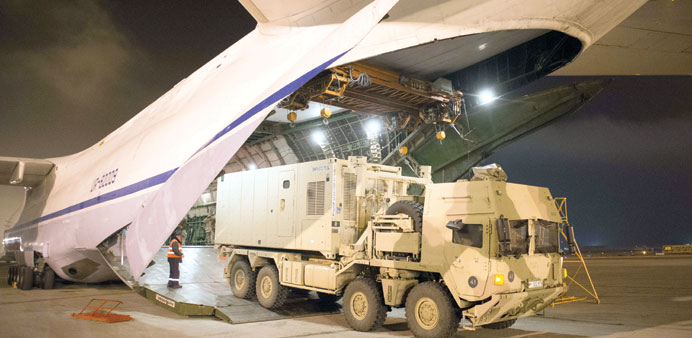By Michael Fischer
Germany’s armed forces are squaring up to one of the most challenging logistical tasks in their entire 58-year modern history.
The mission is to transport as many as 4,800 containers of valuable equipment and 1,200 vehicles back to Germany at the end of deployment in Afghanistan. What is more, they only have 100 weeks in which to do it.
Turkey is the hub for most of the operation which brings the German force in Afghanistan full circle. It was 11 years ago that the first detachment flew via the Turkish port-city of Trabzon in a Transall cargo plane on its way to the Hindu Kush.
The containers, military material of all kinds and the vehicles will be funnelled back to Germany via Turkey up until the end of 2014.
The operation will take place in two stages. The first leg will be by air from the Bundeswehr armed forces HQ at Mazar-e-Sharif as far as Trabzon. The second leg back home again will be mainly by sea from the Black Sea port.
Bound for Germany is a wide range of equipment ranging from machine-guns to steel lockers and computers.
Current planning envisages around 85% of the material being shipped via Trabzon. “The Bundeswehr has never had an operation on this scale,” said Lieutenant-Colonel Gabriele Voyé, a logistics expert with the Bundeswehr at Geltow near Potsdam. Up to 300 specialists will be stationed in Afghanistan itself to ensure that operation “Relocation”, as the Bundeswehr terms it, goes ahead smoothly.
Their main task is to speed through the movement of material at the Bundeswehr HQ in northern Afghanistan.
Everything is being gathered there — from armoured cars to field kitchens — indeed the entire gamut of items which have seen service over the last decade. Each piece of equipment is being catalogued, packed for despatch and disinfected in order to rule out animal diseases being imported into Germany.
For the trip to Trabzon, the Bundeswehr has hired a small fleet of transport aircraft from Russian and Ukrainian makers Antonov und Ilyushin.
The giant planes are more than twice the size of the Germans’ own planes. The hold of an Antonov is 37m long — more than enough to accommodate two Marder armoured infantry vehicles.
Up to 200 soldiers will secure the Trabzon hub during the operation. The Bundeswehr has rented 30,000 sq m of quayside storage. “The plan is that a ship will leave here roughly once every three months,” said a Bundeswehr spokesman in Trabzon.
Some 300 Bundeswehr vehicles can fit onto a freighter which will set off for Germany via the Mediterranean, the Atlantic and the North Sea.
The trips will take around two weeks. Some equipment with sensitive technology, which must not fall into the wrong hands, cannot be shipped home via Turkey.
Arms, armoured vehicles and related items will be flown directly from Mazar-e-Sharif to Germany.
Weapons account for only 5% of the shipment volume. The cheapest way of getting the machinery back to Germany is by road, but this method plays little more than a symbolic role.
After lengthy negotiations, Nato last year reached deals with neighbouring Uzbekistan and with Kazakhstan and Kyrgyzstan on transit rights. Despite that accord, scarcely more than 10% of the Bundeswehr equipment will be routed this way, moving via Latvia and finally by roll-on-roll-off ferry from the Baltic port of Klaipeda.
Sending equipment by land and sea costs only a tenth of the air-freight charges, but it takes five weeks to complete the trip.
Not only that, en route from Afghanistan to Germany are five national borders to be crossed, which makes it difficult to compile a reliable timetable. “We are very much dependent on the speed of transit through the individual countries,” said logistics expert Voyé.
One way around this would be to use the Pakistan port of Karachi, reached via the Khyber Pass, but this would only really make sense for material from the Afghan capital Kabul, where the Bundeswehr has only a modest presence.
It is still not clear just how much equipment will end up back in Germany. This is down to a lack of political certainty over Germany’s post-2014 role in Afghanistan when Berlin’s authorisation for the Nato military operation expires.
Berlin has offered to keep training officers and advisers in Afghanistan, but no firm decision on the matter has been made. German Defence Minister Thomas de Mazière appeared to be keeping his options open when he spoke during his last visit in March.
He said soldiers should ponder a number of possible scenarios. “They include the option that we switch off all the lights here on December 31, 2014, through to a continued presence of some kind in the north and in Kabul and all the eventualities in-between.”
More detailed plans of Germany’s Afghan presence are likely to be presented before national elections slated for the autumn. — DPA

